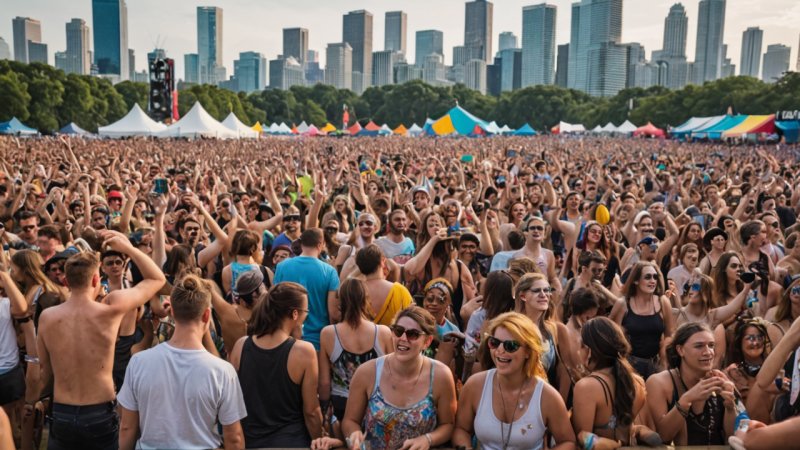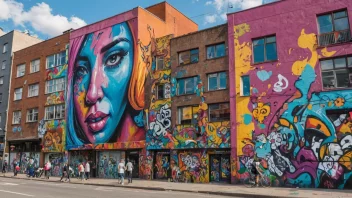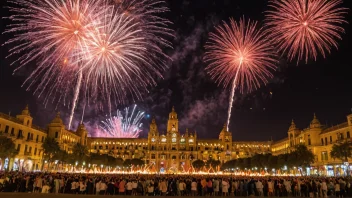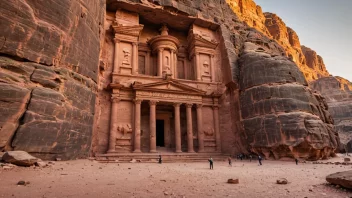Lollapalooza has become one of the most iconic music festivals in the world, celebrated not just for its impressive lineup of artists but also for its vibrant cultural atmosphere. To gain deeper insights into what makes this festival a unique blend of music and culture, we imagined an interview with Dr. Jennifer Melrose, a fictional cultural anthropologist and music festival expert.
Understanding the Festival's Origins
Interviewer: Dr. Melrose, can you tell us about the origins of Lollapalooza and how it has evolved over the years?
Dr. Melrose: Lollapalooza originated in 1991 as a farewell tour for the band Jane’s Addiction, but it quickly transformed into a multi-genre festival that showcases a diverse range of music. Over the years, it has expanded globally, branching out into major cities like Chicago, Berlin, and Santiago. Each location adds its own unique cultural elements, making the festival a melting pot of musical influences and cultural expressions.
The Cultural Significance
Interviewer: What cultural significance does Lollapalooza hold for its attendees?
Dr. Melrose: Lollapalooza is more than just a music festival; it’s a cultural phenomenon. It serves as a gathering place for individuals from various backgrounds to celebrate their shared love for music. Attendees often feel a sense of community, and the festival fosters a space for social interaction, artistic expression, and cultural exchange. The diverse lineup reflects global music trends, allowing festival-goers to experience sounds from different parts of the world.
Unique Experiences Beyond Music
Interviewer: Can you elaborate on some unique experiences that attendees can enjoy beyond the music performances?
Dr. Melrose: Absolutely! Lollapalooza offers a rich tapestry of activities beyond just music. There are art installations, food vendors showcasing local cuisine, and workshops that promote sustainability and social issues. For instance, attendees can participate in yoga sessions or even art creation workshops. This blend of music with experiential activities enhances the overall festival experience and encourages engagement with various forms of art and culture.
The Role of Technology
Interviewer: How has technology influenced the Lollapalooza experience?
Dr. Melrose: Technology plays a crucial role in shaping modern festivals. From live streaming performances for viewers at home to mobile apps that help attendees navigate the festival grounds, technology enhances accessibility and engagement. Social media platforms also allow fans to connect, share experiences, and even interact with artists. This tech-savvy approach broadens the festival's reach and creates a more immersive experience for attendees.
The Future of Lollapalooza
Interviewer: What do you envision for the future of Lollapalooza?
Dr. Melrose: The future of Lollapalooza looks bright, with an increasing emphasis on environmental sustainability and inclusivity. I believe we will see more festivals adopting eco-friendly practices and promoting social causes. Additionally, as music continues to evolve, Lollapalooza will likely adapt to include emerging genres and artists, further enriching its cultural tapestry. The festival’s ability to innovate while staying true to its roots will be vital in maintaining its relevance.
Final Thoughts
Interviewer: Any final thoughts on what makes Lollapalooza special?
Dr. Melrose: Lollapalooza stands out for its ability to blend music with culture in a way that resonates with people from all walks of life. It embodies the spirit of collaboration, creativity, and celebration. Attendees leave not only with memories of their favorite performances but also with a deeper understanding of the cultural fabric that shapes our world. It’s a festival that truly brings people together.






